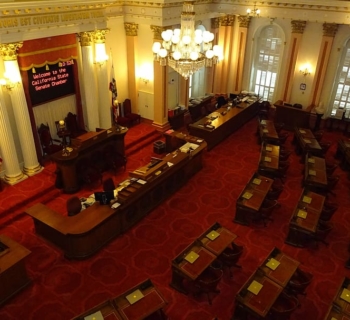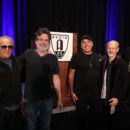There is a new law in California that will take effect Jan. 1, 2020. California Assembly Bill 5 (AB5), also referred to as the new “Gig” law, provides that many people who have traditionally been treated as independent contractors will now be classified as employees and will receive all the benefits of that designation.
This new law codifies and expands an April 2018 California Supreme Court case. The new law provides for a three-prong test to determine if one is to be classified as an independent contractor: The independent contractor must be free to perform his or her job as they determine, they must be in a different line of work than the company that contracts with them and they must operate their own business.
Certain industries (but not the music biz) were able to “carve out” exceptions to the new law, such as Uber drivers, barbers, travel agents, doctors, architects, photographers and financial advisors.
The historical background and reason for this new law is that some people and companies have taken advantage of employees by classifying them as independent contractors in order to avoid providing them with certain benefits, such as minimum wage, overtime, sick leave, and unemployment and disability insurance. It is estimated that these costs can add 20-30% to labor costs.
By way of example of how the Gig law will affect independent music artists, let’s assume you are an unsigned artist and you want to perform at a club on Sunset Blvd., in LA. You need to hire back-up musicians. In the past you would treat these musicians as independent contractors. After all, they are only being hired for one gig. But under the new law, they will be treated as employees and you would be required to provide all the benefits an employee receives. Or consider going into a recording studio to record and to have to treat the sound engineer and back-up singers as employees?
Many in the music industry are hoping the law will be revised to exclude the music biz. It is feared that music artists will simply decide not to perform or record in California so they can avoid the harsh provisions of the new Gig law.
According to Richard J. Burgess, President and CEO of the American Association of Independent Music (A2IM) in a joint statement with Recording Industry Association of American Chairman and CEO Mitch Glazer and attorney Jordan Bromley of the Music Artist’s Coalition:
“Our coalition is disappointed we could not come to a consensus with our colleagues in labor in order to protect and support Californian independent artists, producers, engineers, and musicians. Rest assured that we will not stop until we have a solution that works for all of us in the music business. In the meantime, recording artists, producers, musicians and everyone else in our music ecosystem in California will have to be very careful when they enter into or initiate a recording or writing session. It will be hard to make music in California until this crucial exemption is won.”
GLENN LITWAK is a veteran entertainment attorney based in Santa Monica, CA. He has represented platinum-selling recording artists, Grammy-winning music producers, hit songwriters, management and production companies, music publishers and independent record labels. Glenn is also a frequent speaker at music industry conferences around the country, such as South by Southwest and the Billboard Music in Film and TV Conference. Email Litwak at gtllaw59@gmail.com or visit glennlitwak.com.
This article is a very brief overview of the subject matter and does not constitute legal advice.














